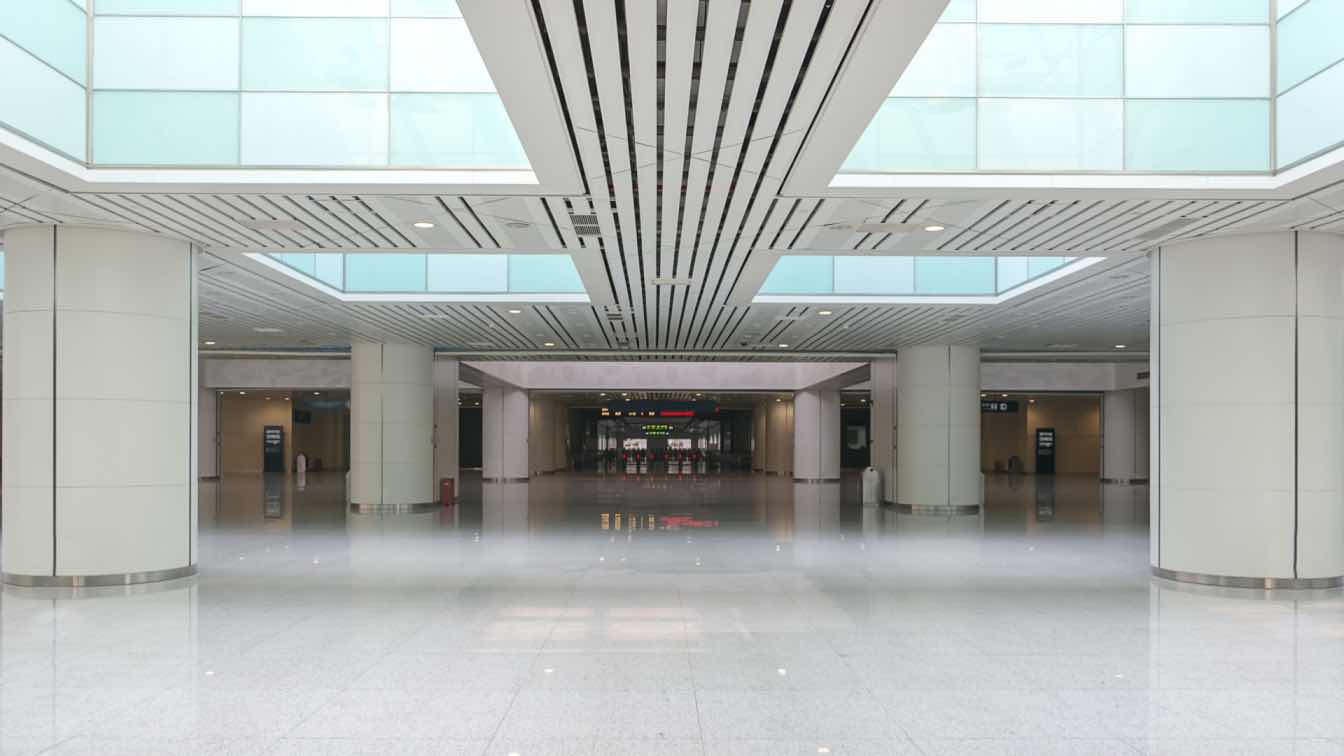The real estate field has been drastically transforming over the last decade thanks to changes in the hospitality industry, the pandemic, and the emergence of new technologies. PropTech is a bright example of industry evolution. PropTech stands for Property Technology and includes a range of new digital technologies and innovations and their application for the sake of managing property — buying, selling, renting, etc. A lot of countries already utilize some of these methods, for example, the real estate Dubai market is known for being a safe haven for PropTech companies.
According to a market research study, conducted by Zion Market Research, the PropTech market size is continuously rising — from 19.5 billion in 2022 to an estimated 32 billion in 2030. In the following 7 years, its compound annual growth rate will stay at around 6.5%.
The main drivers behind this development correspond with the ones driving other industries:
- increased development and use of digital technologies, including generative AI;
- constantly growing demand for automation of processes among industries;
- new investment opportunities in commercial and industrial sectors;
- and sustainability challenges that almost every industry faces nowadays.
We are already familiar with the most popular PropTech trends like eSigning, big data analytics, AI and ML, blockchain, smart-house solutions, and others. Let’s discuss them in more detail.
eSigning Becomes the Norm
eSigning has become a huge breakthrough in document management thanks to the pandemic. Now, it has become a widely spread solution that allows us to stay flexible and increase security when concluding contracts. As The Insight Partners research shows, the eSigning market was worth over $5 billion in 2022 and is supposed to reach as high as over $40 billion in 7 years — by 2030.
Introducing digital or electronic signatures can really change the whole way we do business. It decreases the money and time spent on exchanging documents, allows preparing and authorizing any type of document, and even provides an audit trail, using which, we can track all the files in cases of disputes.
Virtual notary services have also seen progress after the emergence of eSigning. It allowed to cut in-person meetings, which were off the table anyway during the pandemic. A lot of countries adopted the necessary legislation on virtual notarization in cases of sale and purchase agreements, rent agreements, business contracts, etc. Buyers and sellers can use the digital platform to sign the necessary documents and send them over for a notarial verification, which enables a quicker document flow and eliminates redundant bureaucracy.
Big Data Analytics Enhances Decision-Making
We collect and analyze large amounts in every industry today, thus improving the decision-making process, understanding marketing trends, and improving the customer experience. In the real estate field, such insights are precious, since they help to utilize market dynamics and forecast the price of the properties, choose the right investment location, and assess the risks associated with it.
A few sources that an expert can gather the big data from include:
- property listings for specific locations and time periods;
- customer preferences which include feedback, interactions with listings, etc.;
- social media reviews give great and very specific insight;
- market dynamics allow seeing the trends and forecasting the nearest future of the field;
- demographic and location data can be used to create the user persona for the specific location and types of objects.
VR and AR Create Immersive Experiences
Introducing AR and VR benefited the real estate sphere a lot. Combined with eSigning and Blockchain technology, it provided the option to buy or sell the property without physically visiting the place. It allows us to view, design, and market the property in a few clicks. According to some projections, the global market for such technologies is supposed to reach over $790 billion by 2032.
With the development of AR/VR industries, some tools specifically enable the virtual viewing process. For example, Matterport can create 3D models of various properties; EyeSpy360 allows to conduct video tours on the object, and VRXOne offers a bunch of different solutions for developers.
As for marketing and design, AR and VR tools like roOomy, SmartView Media, and GeoCV allow users to virtually decorate apartments and houses, create floor plans and walkthroughs, and then take 3D tours of the virtual property. In the near future, we’ll definitely see more of such tools allowing us to do everything without leaving the house.
Blockchain Enables Secure and Transparent Transactions
Blockchain has become another technology widely adopted over the last few years. Combined with AR/VR technologies and eSigning, it has basically made the purchase and sale of the property much easier to the point it can be done remotely. So, blockchain uses a distributed leverage technology that is able to store and verify data in a decentralized network.
Among the biggest benefits of this technology are:
- security achieved by smart contracts and total decentralization;
- decreasing transaction costs and increasing transaction speed by eliminating intermediaries like banks;
- enhanced accessibility — crypto-assets can be accessed everywhere within minutes without the fuss around bank accounts.
There are quite a few blockchain solutions that facilitate real estate transactions. Propy platform allows buyers and sellers to complete the entire process online using smart contracts and cryptocurrencies; ShelterZoom is basically a marketplace for property deals based on blockchain; and Ubitquity allows recording and tracking property within the blockchain network.
Another trend within blockchain PropTech is fractional property ownership. This means that you can buy shares or tokens of property instead of buying the whole object. This has mostly investment purposes and offers high returns. Platforms like Stake in Dubai and RealT in the US are the places to purchase such fractional property rights.
Smart Home Solutions Enhance Comfort and Efficiency
Smart home solutions are huge right now. They allow us to delegate the simplest tasks to the technology inside our houses. Just imagine: things like IoT devices and sensors have built-in AI technology that can increase energy efficiency, comfort, and security with little to no effort.
Implementing such solutions can also allow buyers to increase the prices when selling the property. Automated houses can reduce utility bills, improve safety, and make the place more comfortable in all aspects. The smart solutions market has a lot to offer nowadays. Businesses like Nest offer cameras, thermostats, doorbells, locks, and speakers; Philips Hue provides smart lighting control, and Amazon Alexa or Google Assistant enable voice control systems.
Implementing such solutions can also allow buyers to increase the prices when selling the property. Automated houses can reduce utility bills, improve safety, and make the place more comfortable in all aspects. The smart solutions market has a lot to offer nowadays. Businesses like Nest offer cameras, thermostats, doorbells, locks, and speakers; Philips Hue provides smart lighting control, and Amazon Alexa or Google Assistant enable voice control systems.
In Summary
PropTech is the new and profitable reality for the real estate field. It offers a range of solutions to manage properties before and after the sale/rent. Technologies like big data and VR/AR enable us to analyze the market and manage the properties. Decentralized blockchain networks and digital signatures help to conclude sale and purchase contracts and transfer money remotely without physically being there. Smart house solutions allow us to save time and money and make house management a lot easier and more efficient.





